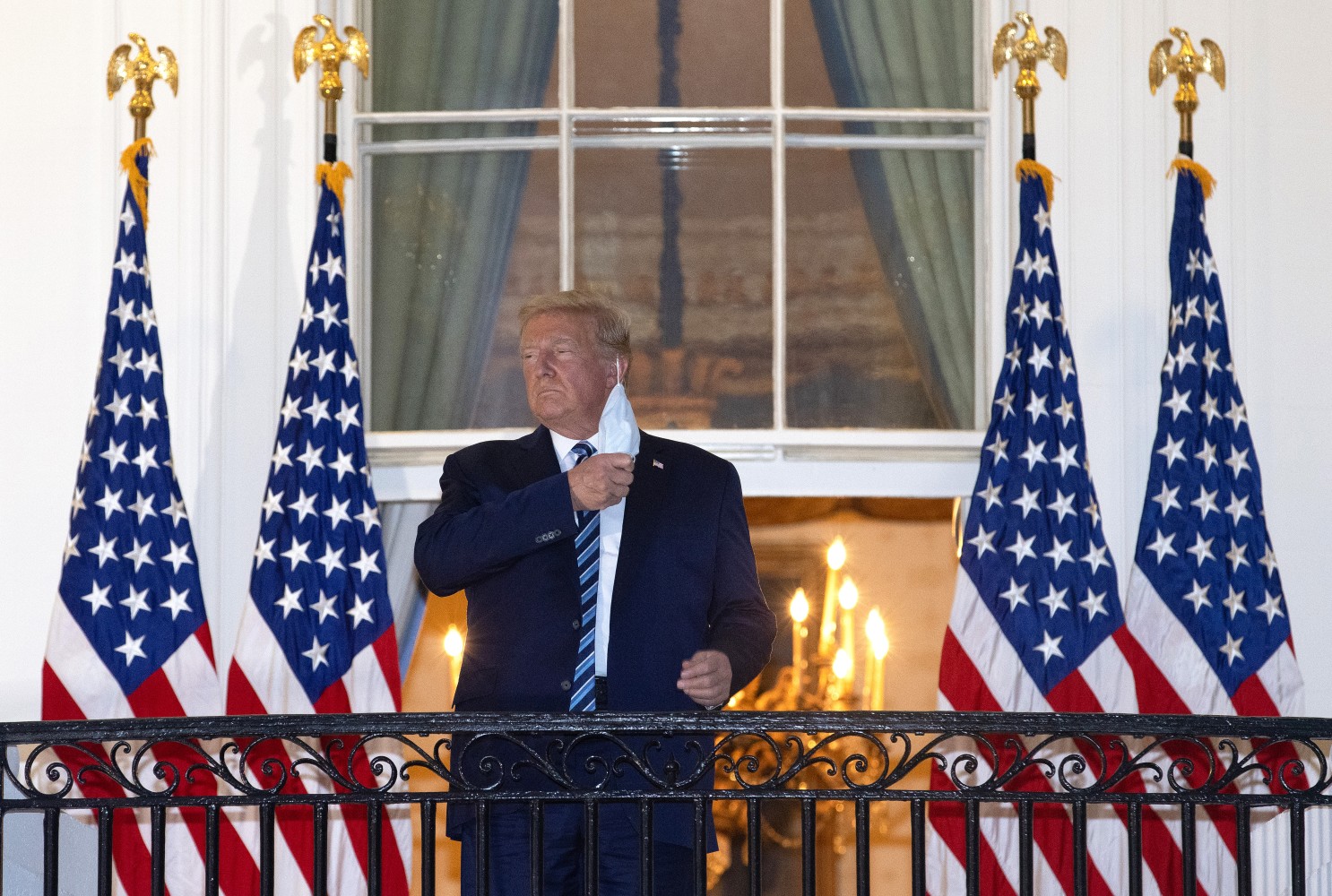Have you heard there’s a pandemic going on? Yes, it may come as a shock, but hear me out: while most of us are frolicking outside and remaining gainfully employed, there’s a crown-shaped virus—a coronavirus, if you will—ravaging communities around the globe, unreported on by every news outlet. But like a light in the darkness, the documentary Totally Under Control is here to give us all the details, including how failed businessman Donald Trump (who’s now the president, apparently) bungled the U.S. response to the threat. Who would’ve thought?
Facetiousness aside—I get it. I really do. The pandemic is the last thing you want to hear more about, let alone watch a documentary about. But Totally Under Control isn’t any old doc. It comes to us from Alex Gibney, the documentarian who blew the lid off the Church of Scientology with his film Going Clear. His career spans decades of breaking and breaking down scandals, including some of the biggest in American history. You could call him the Bob Woodward of documentary filmmaking: like Woodward, he’s done crucial investigative work in the past, but will inevitably fail to make a dent in the Trump administration.
Well, maybe that’s unfair (and, even worse, I’m getting ahead of myself). Totally Under Control is chock full of explosive revelations, and the research that went into its deep dive for the truth is nothing short of professional. Gibney’s narration, as well as the work of editors Lindy Jankura and Alex Keipper, arranges the onslaught of information into a coherent flow, and the doc’s tone is instructional when it could’ve easily been sensational. It’s a well-made investigative documentary that does what it sets out to do. But the question remains: is it taking the best approach?
At least one person behind the film’s release thinks so. Its marketing materials raise a furor over how the documentary was filmed in secret over the last five months, positioning it as a surprise bombshell, and the movie features a number of White House insiders breaking NDAs to shed light on the administration’s malfeasance. Careers were put on the line for this documentary. Sometimes that feels worth it, particularly when America’s put up for comparison: seeing the disparities in pandemic response between South Korea and the U.S. is a healthy blow to American exceptionalism, for example, and it’s illuminating to watch the White House push hydroxychloroquine with the force that other governing bodies used for actual assistance.
But without a keen sense of its audience, Totally Under Control misses the forest for the trees. Put simply, the people that stand to learn the most from this documentary won’t go anywhere near it, and the people seeking it out aren’t going to learn anything new. A lot of the finer details are new, yes—as mentioned before, this is a sufficient work of investigative journalism—but the takeaways are the exact same takeaways we’ve been getting from investigate journalism for months now. If you’re accustomed to the Trump administration throwing wrenches in the works and the American people under the bus, finding out whether they’re throwing monkey wrenches or pipe wrenches won’t feel like it’s saving you from vehicular manslaughter.
And then there’s the problems underlying it all: a short supply of empathy and the death of critical thinking. Those are (some of) the unspoken roots behind the co-opting of our democracy, the Trumpian cocktail of superiority complex and selfishness, and the contagious inability to assess information that contradicts your worldview. Totally Under Control fails to examine that bedrock, and it fails to appeal to the people trapped in it. By the end of the documentary, these failures seem deliberate: the last bit of narration explains that the U.S. pandemic response is a symptom of a larger disease, but then has the cowardly audacity to end with a sentiment equivalent to “we should probably get that figured out, huh”. The hardest work remains undone. That’s not a dismissal of the good, hard work that went into this documentary, but it is a request that we take a step back and review the fundamentals. Otherwise, the most valuable thing we’re getting from these powerful whistleblowers is the schadenfreude of running into them at the unemployment office.
★★★ (3/5)




